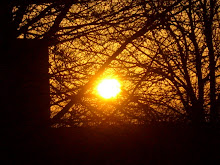The Devaluation of Heroes
"Ah, does not every true man feel that he is himself made higher by doing reverence to what is really above him?" -- Thomas Carlyle, Heroes and Hero Worship.
It would have been hard to miss Saturday morning's Space Shuttle disaster. Even harder still to miss would have been the subsequent, unremitting coverage of the disaster on every network, from every possible angle, human or mechanical, and of course, the perfidious fraud of this cacophony of nescient news anchors and witless commentators knocking each other over in the effort to outdo one anothers' talents for hyperbolic embroidery on the meaning of the death of these seven unfortunate astronauts.
Leading the list of pet titles bestowed upon these unfortunate seven by this saturation of eulogizers has been to call them "heroes" or "courageous heroes". It reminded me immediately of the maudlin grandiloquence employed following 9/11 when everyone from hapless caterers to illegal immigrant busboys to innocent bystanders were named as "heroes" simply for dying in an astounding act of terrorism. The context of true heroic acts performed on 9/11 are thereby greatly obscured, as is the true value of what it means to be heroic in today's decidedly unheroic society.
Traditionally, a hero is recognized as someone endowed with great courage and strength, celebrated for his bold exploits, and favored by the gods. Later, this was modernized to mean a person noted for feats of courage or nobility of purpose, especially one who has risked or sacrificed his or her life.
My problem with calling these particular astronauts "heroes" is not that they were not brave, or courageous or noble. They were likely all of these and more. But if they were heroes, then so are small children growing up in inner city neighborhoods plagued by drugs, crimes and stray bullets. So are students and teachers who get up every morning and try to learn or teach in what the No Child Left Behind program calls: "persistently dangerous schools". So are millions of people who risk their lives each day in the line of their work; anyone from police officers to firemen to coal mine workers to airplane pilots to the drivers of trucks carrying deadly or toxic materials, construction workers to explosives workers, ordnance handling experts & blasters.
The problem is not that any of these people, in any of these professions are potential heroes. The problem is that the term is used so liberally now that it is barely meaningful any more. Why then are the astronauts considered heroes? Because they died unexpectedly with millions of people watching on television? In 113 shuttle launches, 14 people have died thus far bringing the current ratio to one death per eight missions. Given such odds, it's difficult to imagine that space shuttle astronauts consider such tragedies "unexpected". It is an assumed risk. The kind of assumed risk that people in a wide array of different professions take every day under far less publicity. Were their goals "noble"? About half of the 80 tests conducted on the space shuttle were commercial in nature, sponsored by businesses looking for discoveries to aid commerce. While this isn't in and of itself the fault of the astronauts, promoting experiments that help commercial entities make bigger profits is hardly a noble endeavor. Was this the "service to all humanity" that Bush told the world about following the disaster?
The problem with all of it, the cynical use by politicians of the word "hero" to help make themselves better than they are in the eyes of their voters by paying homage to those newly coined heroes, its pimpish usage by hysterical media windbags to promote their broadcasts, to sell their news and the automatous way the rest of the viewers at home lap up these self-serving definitions to register the degree of the tragedy in question and quantify their shock in simplistic, easily-digestible jingoisms, is that we can no longer separate the chaffe from the wheat when it comes to defining our heroes.
In fact, the devaluation of the term "hero", its altruistic image fading in a hailstorm of amplification and overplay, is the true tragedy we are witnessing. The hero is a dying breed unfortunately. We hear the term in tragedies, the heroes who died, not for a greater good, but for the purposes of lionizing our own increasingly pawnish inutility. To give us a sense of our own meaning in a progressively anesthetized and pointless society of moral outrages.
And always in those icy, stuffy
Prewar years, so sinful, fateful,
Lurked a mysterious roar.
But then the noise was only muffled.
The it hardly touched the hearing
And drowned in Neva's snow.
As if in the fearful night's mirror
Man rages madly and refuses
To recognize his face.
But still along the famed embankment
Real, not as the calendar reckons,
The twentieth century came.
Anna Akhmatova, from A Poem Without A Hero
Abonneren op:
Reacties posten (Atom)

Geen opmerkingen:
Een reactie posten